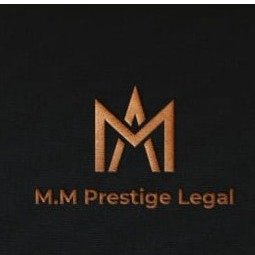Best Legal Malpractice Lawyers in Pretoria
Share your needs with us, get contacted by law firms.
Free. Takes 2 min.
List of the best lawyers in Pretoria, South Africa
About Legal Malpractice Law in Pretoria, South Africa
Legal malpractice occurs when an attorney or legal professional fails to perform their legal duties to the required professional standards, causing harm to their client. In Pretoria, South Africa, legal malpractice cases are a specialized area of law that seeks to provide recourse for individuals who have been negatively impacted by their attorney's negligence or misconduct. This can include acts of omission, providing incorrect legal advice, or a failure to meet deadlines, among others.
Why You May Need a Lawyer
There are several situations in which someone might require legal help concerning legal malpractice. These include instances where a lawyer has missed critical filing deadlines, failed to apply the law adequately, mishandled client funds, or breached attorney-client privilege. Additionally, if a lawyer fails to follow client instructions or provides bad advice leading to an unfavorable outcome, legal assistance may be necessary to pursue a malpractice claim for damages incurred.
Local Laws Overview
Legal malpractice law in Pretoria falls under the broader framework of South African civil law. Essential statutes and regulations include the Attorneys Act 1979, which regulates attorneys’ conduct and the Legal Practice Act 2014, which governs the legal profession. Additionally, common law principles such as breach of contract and delictual claims apply. Plaintiffs must demonstrate that the attorney owed a duty, breached that duty, and caused the client damages as a result of the breach.
Frequently Asked Questions
What constitutes legal malpractice?
Legal malpractice occurs when an attorney fails to perform their legal duties to the required standard, resulting in harm to their client. This can include negligence, breach of contract, or breach of fiduciary duty.
How do I prove legal malpractice?
To prove legal malpractice, you must show that the attorney owed you a duty of care, breached this duty, and caused you measurable damage as a result. Typically, expert testimony is required to establish whether the attorney deviated from the standard professional conduct.
What is the statute of limitations for filing a legal malpractice claim in Pretoria?
The statute of limitations for legal malpractice claims in Pretoria is usually three years from the date you became aware of the malpractice. It is crucial to seek legal advice promptly to ensure compliance with filing deadlines.
Can I change lawyers if I suspect malpractice?
Yes, clients have the right to change lawyers if they suspect malpractice. It is advised to consult with a new attorney who can provide guidance on how to proceed and inform on potential malpractice claims.
What damages can I recover in a legal malpractice case?
In a successful legal malpractice case, you might recover compensatory damages for losses directly attributed to the attorney's misconduct. This can include financial loss, legal fees paid, and costs to rectify the malpractice consequences.
Is mediation or arbitration available for legal malpractice disputes?
Yes, alternative dispute resolution methods such as mediation or arbitration may be available or even preferred in legal malpractice disputes to avoid lengthy litigation.
What if the attorney who committed malpractice is uninsured?
While it complicates the collection of damages, an attorney's lack of insurance does not prevent you from filing a malpractice lawsuit. Consulting a legal professional can help assess your options.
Can I sue a former attorney for malpractice related to a case that is still ongoing?
Pending cases can complicate malpractice claims, as the outcome may influence the merits of the malpractice claim. It is essential to seek advice from a qualified attorney to understand your situation better.
Does legal malpractice cover advice given by attorneys outside the courtroom?
Yes, legal malpractice can encompass any professional advice provided by an attorney, whether verbal or written; if this advice falls below professional standards and causes harm, it may be grounds for a claim.
How much does it cost to hire a lawyer for a legal malpractice case?
The cost can vary significantly based on the case complexity, the lawyer’s expertise, and the fee arrangements they offer. Some attorneys work on contingency, while others may charge hourly rates or flat fees. Initial consultations can provide more insights into potential costs.
Additional Resources
If you are seeking more information about legal malpractice in Pretoria, several resources can be helpful. Consider reaching out to the Law Society of South Africa, which oversees the legal profession and can provide referrals or guidance. The Legal Practice Council also offers resources and maintains a disciplinary body that can receive complaints against attorneys.
Next Steps
If you believe you have been a victim of legal malpractice, it is crucial to act promptly. Begin by gathering all relevant documents and evidence pertaining to your case. Consider consulting with an attorney specializing in legal malpractice to evaluate your situation and advise on the best course of action. They can help determine whether you have a viable claim and guide you through the legal process.
Lawzana helps you find the best lawyers and law firms in Pretoria through a curated and pre-screened list of qualified legal professionals. Our platform offers rankings and detailed profiles of attorneys and law firms, allowing you to compare based on practice areas, including Legal Malpractice, experience, and client feedback.
Each profile includes a description of the firm's areas of practice, client reviews, team members and partners, year of establishment, spoken languages, office locations, contact information, social media presence, and any published articles or resources. Most firms on our platform speak English and are experienced in both local and international legal matters.
Get a quote from top-rated law firms in Pretoria, South Africa — quickly, securely, and without unnecessary hassle.
Disclaimer:
The information provided on this page is for general informational purposes only and does not constitute legal advice. While we strive to ensure the accuracy and relevance of the content, legal information may change over time, and interpretations of the law can vary. You should always consult with a qualified legal professional for advice specific to your situation.
We disclaim all liability for actions taken or not taken based on the content of this page. If you believe any information is incorrect or outdated, please contact us, and we will review and update it where appropriate.










